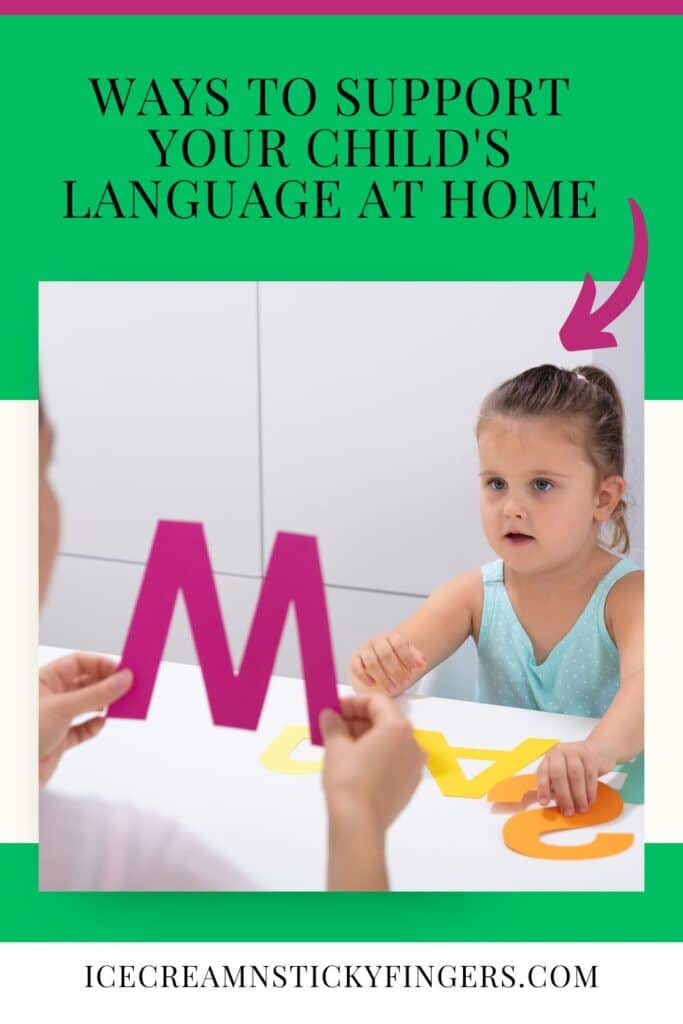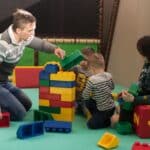What are some of the best ways to support your child’s language at home? Language development starts at the infant stage and they slowly develop their language skills. It is important to encourage your child to be vocal and coo as a baby.
Watching your child find their voice is one of the best parts of parenting. Each new word and sentence opens up their world a bit more. Finding ways to support your child’s language development at home is easier than you might think, and many strategies fit right into your daily routines. Every day brings chances to build up your child’s communication skills in small, meaningful ways.

Turn Daily Routines Into Conversations
You can turn everyday tasks into language-building moments just by staying present and talking with your child. During meal prep, say the names of each ingredient together. Talk about their colors, textures, and smells. At bath time, count the rubber ducks in the tub or talk about how the water feels: warm, cool, splashy. When you and your child clean up toys, sort them by color or shape and name each out loud. You can even count together as you put blocks back in the box. These simple touches introduce new words while bringing in early math, too.
Keep a steady flow of words going about what you’re doing and seeing, and invite your child to join in. Ask open-ended questions like, “What should we do next?” or “Where does this toy go?” to spark a response. Even short back-and-forth chats help build their vocabulary, conversation skills, and confidence.
Use Play To Encourage Expression
Play is where kids’ language really comes alive. Simple games and pretend play, like making up stories with stuffed animals or setting up a toy store, let your child try out new words and practice their conversational skills. You can also use games to focus on certain sounds, words, or topics your child is learning.

Fun, playful activities support clear speech and help kids feel comfortable sharing their ideas. If you want to try something more structured, it can be helpful to include strategies that are common in speech therapy. Adding these simple activities creates extra chances for growth, without making language practice feel like work. You can even introduce baby sign language as well.
Read Together Every Day
Reading together is one of the best ways to boost language skills. Books introduce fresh words, show a variety of sentence styles, and make storytelling part of your routine. Pick stories that invite your child to participate, especially those with rhymes or repetition.
To make reading even better, try these ideas.
- Pause to talk about the story or pictures.
- Ask your child what might happen next.
- Point out words as you read them to encourage early literacy.
Sharing books isn’t just good for language; it also brings you closer and makes reading a time to look forward to.
Trying out these ways to support your child’s language at home helps you create a warm, supportive place for your child to keep growing as a communicator. Celebrate every new word and little conversation; each is a big step on the journey. Your consistent encouragement and daily involvement make all the difference.







